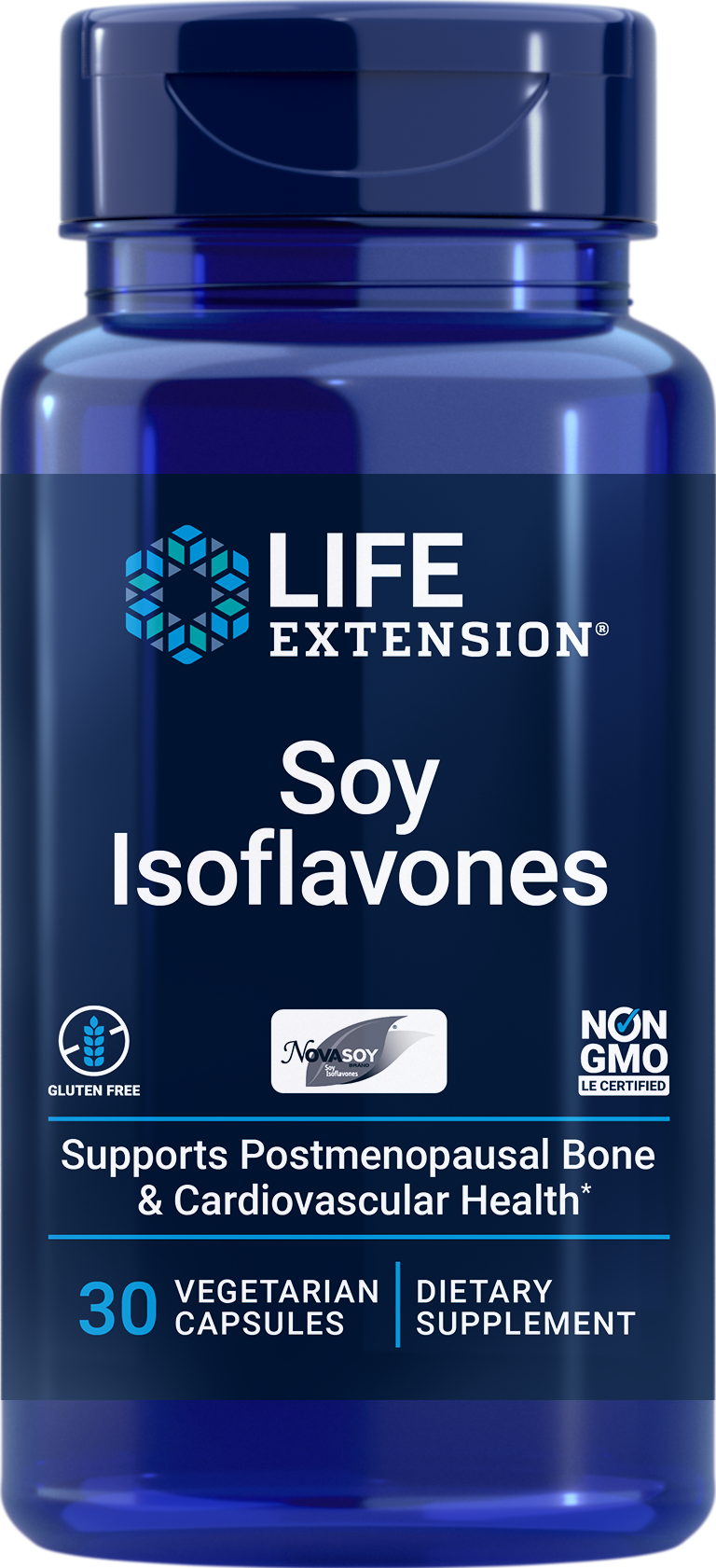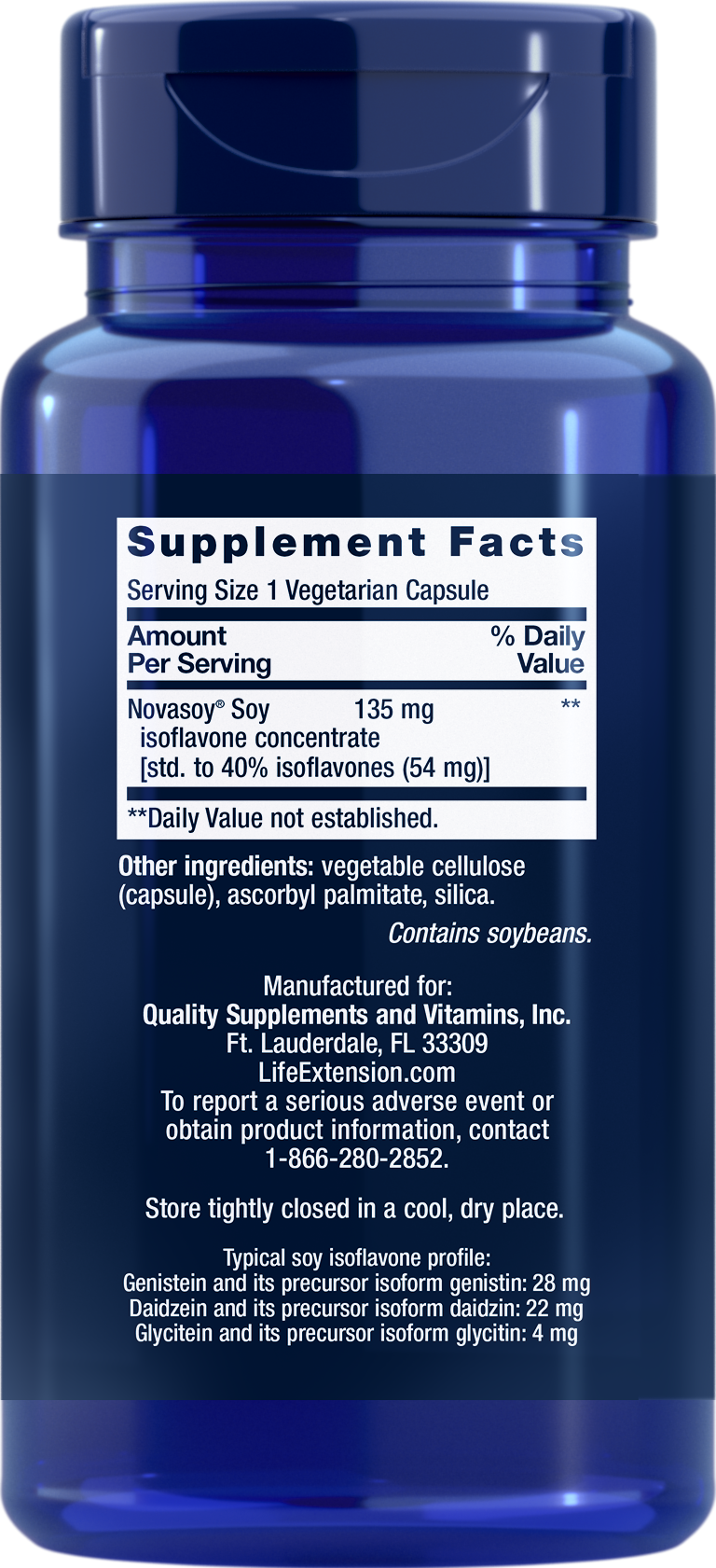Soy Isoflavones
Promotes healthy cell function
Soy Isoflavones
Promotes healthy cell function
For you, if you are interested in soy's wide array of benefits, like its cell-protective effects
The active ingredients in Super Absorbable Soy Isoflavones can:
- Encourage a healthy cell division and function
- Promote cardiovascular, metabolic, and bone health
- Support already-healthy blood pressure
- Help maintain a healthy hormonal activity
Super Absorbable Soy Isoflavones contains a soy extract with enhanced bioavailability. A supplement designed for heart health and immune support.

on orders over € 69
We have a 100 days return policy, not the standard 30 days!
Order before 11:00 CET, for same day shipping (Mon-Fri)
We can help you in 6 languages
Soy isoflavones, such as genistein, have been proven to have many beneficial effects. According to studies, individuals who consume more soy can enjoy healthier cell biological function and proliferation.
Genistein is one of the three major soybean isoflavones, along with daidzein and glycitein. They exert oestrogenic or anti-estrogenic effects, depending on the tissue in which they are acting.
Being called phytoestrogens, they also have non-hormonal effects and help stimulate bone formation. Other constituents of soy revealed beneficial effects, which explain the longevity of Asian populations that have soy-enriched diets.
In response to increasing evidence of the cell-protective effects of other soy constituents, soy extract standardised to isoflavones was created.
As a result, only one capsule of Super Absorbable Soy Isoflavones may be required per day.
| |||||||||||||||||
Dosage and use | |||||||||||||||||
| |||||||||||||||||
Typical soy isoflavone profile: Genistein and its precursor isoform genistin: 28 mg Daidzein and its precursor isoform daidzin: 22 mg Glycitein and its precursor isoform glycition: 4 mg | |||||||||||||||||
Warnings | |||||||||||||||||
| |||||||||||||||||
- Nutrients. 2018;10(1):43-94.
- Curr Cardiol Rev. 2019;15(2):114-135.
- Crit Rev Oncol Hematol. 2017;119:13-22.
- Molecules. 2019;24-52(6):1076.
- Nutrients. 2017;9(4):324-48.
- Am J Clin Nutr. 2017;106(3):801-811.
- Mech Ageing Dev. 2014;136-137:148-62.
- Crit Rev Food Sci Nutr. 2017;57(6):1280-1293.
- J Nutr. 2017;147(9):1749-1756.
- Am J Clin Nutr. 2017;105(2):426-431.
- J Ind Microbiol Biotechnol. 2008;35(8):791-8.
- Carcinogenesis. 1995;16(3):471-6.




